2024
CORIELL INSTITUTE FOR MEDICAL RESEARCH
ANNUAL REPORT
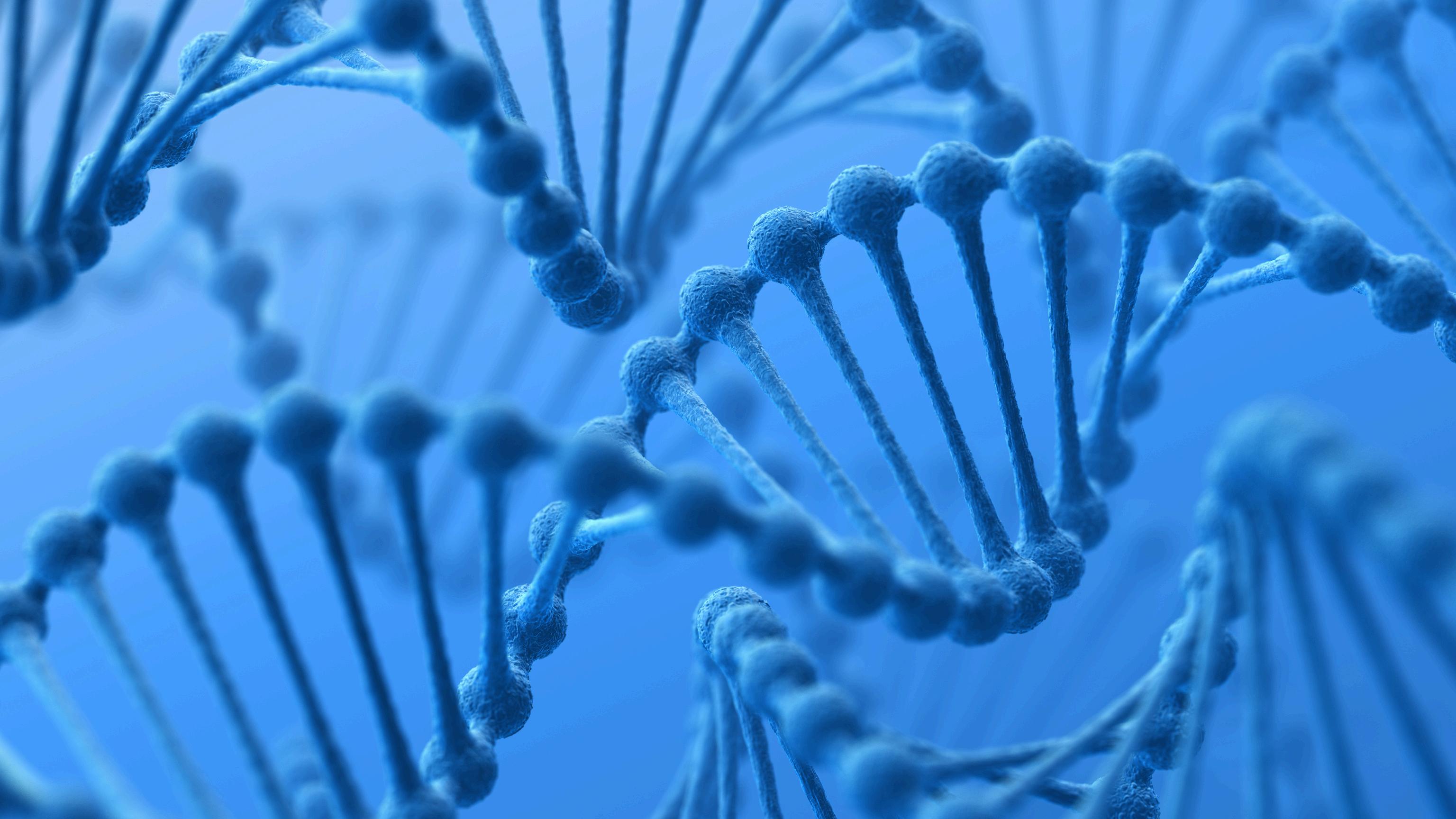


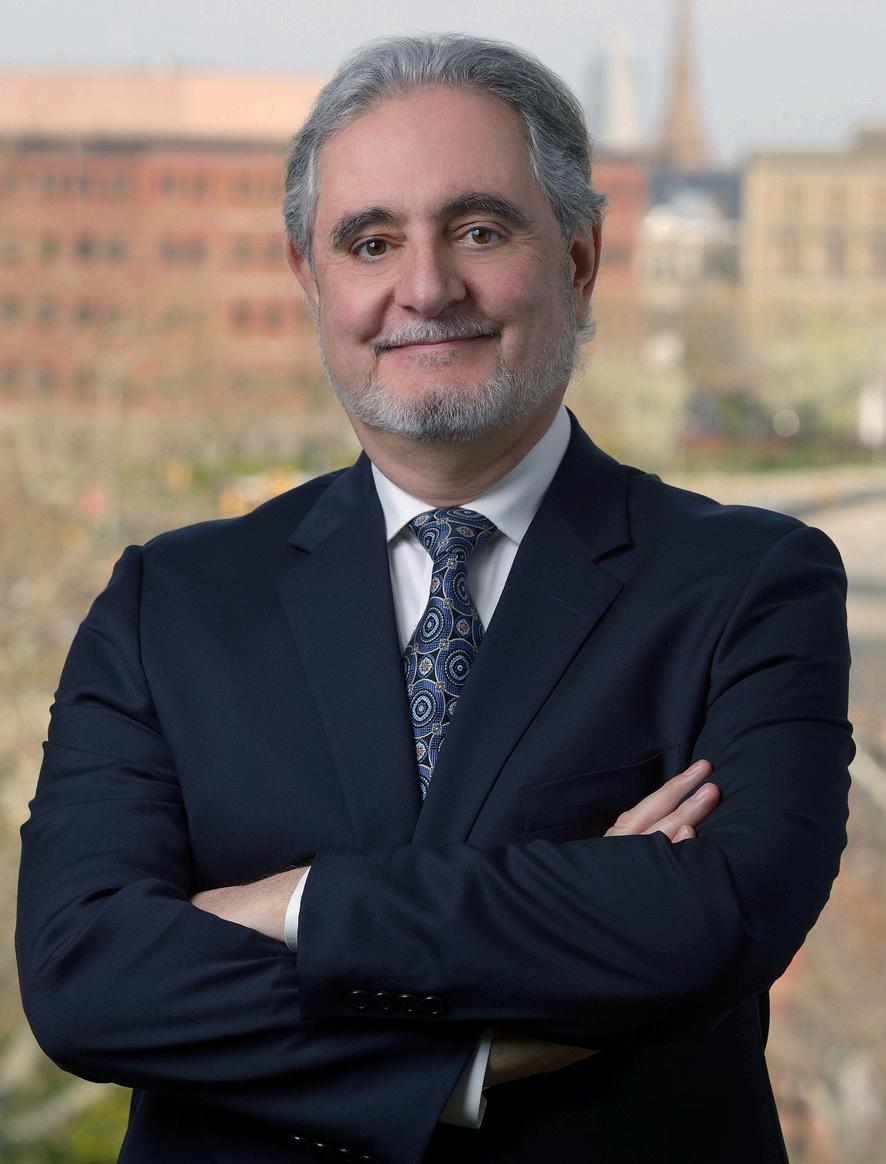
LETTER FROM DR. JEAN-PIERRE
CORIELL PRESIDENT AND CEO





LETTER FROM DR. JEAN-PIERRE
CORIELL PRESIDENT AND CEO
Dear Friends,
I am pleased to present our Annual Report for 2024, another year of continued leadership in biobanking and scienti�c discovery, and progress towards our vision for the future of life sciences research in southern New Jersey.
Our prowess in biobanking was recognized with new and renewed partnerships to host and service biobanks of the National Institutes of Health and the FOXG1 Research Foundation.
In the lab, we had another outstanding year on our continuing mission to unlock the genetic codes to delay and eradicate disease, with Coriell researchers breaking new ground with numerous papers published in leading scienti�c journals.
Locally, our plans for a new life sciences campus in Camden that will nurture emerging biotech companies and serve as the focal point of a vibrant life sciences ecosystem in the region gained momentum.
Our achievements are a testament to the outstanding team at Coriell, who come to work every day with the sole focus to improve human health. Thank you all for your passion for your work and dedication to our mission.
Likewise, I want to thank our partners, donors, and the State of New Jersey without whose support our work would not be possible.
We share our successes with you and look forward to our continuing collaborations in pursuit of our mutual goal to eliminate disease.
On a somber note, while conquering disease is our mission, the Institute family is not immune from its impact. We mourn the passing of two long-time leaders whose contributions helped make Coriell the world-renowned medical research institute it is today. Thirty-year Coriell Trustee Dr. Edward Viner, and famed virologist Dr. Arthur Greene, a member of the original Coriell team, who led the Cell Biology Department for more than 35 years and worked with Dr. Jonas Salk on development of the polio vaccine.
Please enjoy this report and follow our research and progress on our new science campus on our social media. We are very excited about the innovative research we are conducting and the promise that our new facility holds for our continued growth and to serve as a catalyst for the expansion of life sciences research in southern New Jersey.
We are delighted to have you join us for the exciting times to come.
JEAN-PIERRE ISSA, MD
PRESIDENT AND CHIEF EXECUTIVE OFFICER

John Apathy, MBA
Arnaud Bastien, MD
Lou Bezich, MPP
Peter E. Driscoll, Esq.
Christopher R Gibson, Esq
Frank Giordano
Generosa Grana, MD, FACP
Matthew Hewitt, PhD
Jean-Pierre Issa, MD
Robert Kiep, III, Chairman
Marc S. Maser, Esq.
John Piccone
Annette C Reboli, MD
Miruna Sasu, PhD
Roland Schwarting, MD
Kenneth A Somberg, MD, MBA

Our reputation for biobanking excellence is rooted deep in our history. In fact, our founder, Dr. Lewis L. Coriell, recognized early the scientific community’s need for standardized and reliable biological materials, so he led the effort to develop and improve the many scientific processes that go into full service biobanking.
The FOXG1 Research Foundation has partnered with the Coriell Institute of Medical Research to establish a comprehensive Biobank containing patient-derived iPSCs and blood samples from individuals with FOXG1 syndrome and their family members These invaluable resources will be accessible to scientists worldwide, facilitating expanded research and supporting current and future therapeutic endeavors.
Coriell scientists showcased the National Human Genome Research Institute’s (NHGRI) Sample Repository for Human Genetic Research in posters presented at the American Society for Human Genetics and the Association for Molecular Pathology annual meetings.
The National Institute of Neurological Disorders and Stroke (NINDS) Human Genetic Resource Center renewed its contract with Coriell for another five years, continuing our long partnership.
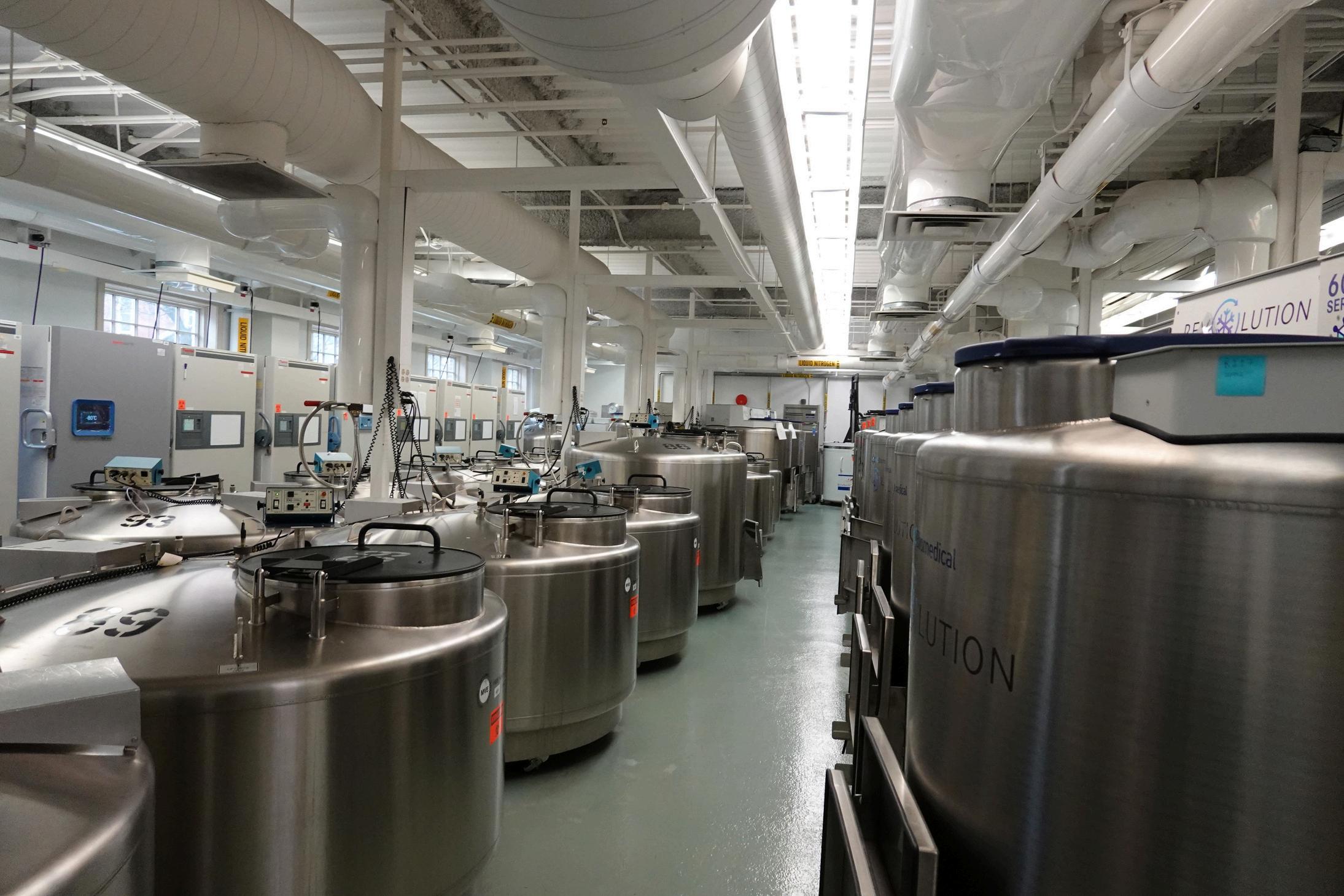
B I O B A N K I N G B I O B A N K I N G
$13,435,288
in total funding from Sponsored Research
24 37 grants, contracts, and LOIs were processed by the Coriell Research Office
research papers published by Coriell scientists in leading research journals
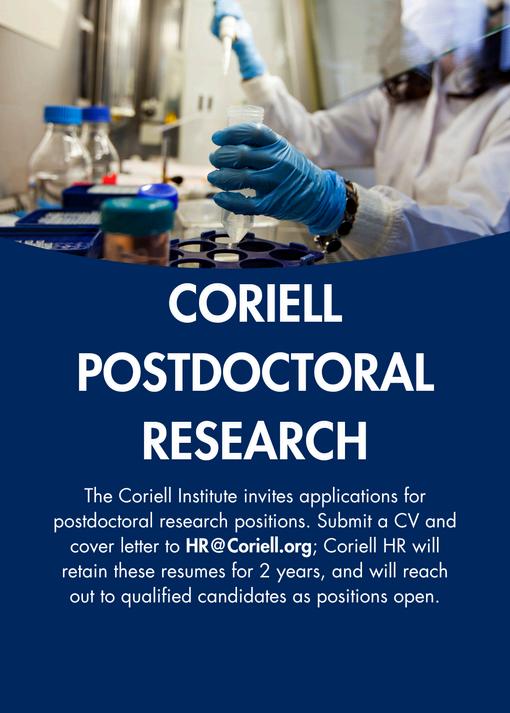
The Issa Lab investigates the many ways in which the epigenome plays a role in our health, from cancer development to the aging process. In studying epigenetics that is, studying how portions of our genome are activated and deactivated—the lab seeks to better understand how human health is impacted by and can potentially be improved with changes to the epigenome.
In 2024, the Issa lab reported on a study of the in�uence of bacteria on the clinical and molecular characteristics of colon cancers in over 500 patients. They found that speci�c bacteria were associated with characteristic molecular features that may in�uence the choice of treatment. For example, cancers with high levels of Bacteroides fragilis and/or Fusobacterium nucleatum had abnormal gene expression and a high level of mutations that are associated with an excellent response to immunotherapy. These bacteria are commonly found in the guts of healthy individuals, and the study suggests that unchecked expansion of these bacteria could be a contributing feature to the development of colon cancer.
For more information on the Issa Lab, click here. Papers published by the lab in 2024 can be found in the list of Publications.
The Chen Lab has multiple research interests in oral and esophageal cancers with a focus on cancer cell signaling and metabolism in esophageal squamous cell carcinoma (ESCC) with a translational intention.
Last year, the Chen lab developed a new research direction to take advantage of Coriell's collection of propionic acidemia cells and iPSC expertise and obtained an NIH R21 grant.
The lab also partnered with Insilico Medicine, an AI drug discovery company, in discovering molecular glue compounds targeting NRF2
One AI-designed compound (out of synthesized compounds) successfully degraded mutant NRF2 as expected This is the �rst AI-designed molecular glue in the literature This study will be presented in the AACR Special Conference in Cancer Research: Arti�cial Intelligence and Machine Learning, July 10-12, 2025, Montreal, Quebec, Canada. The lab has synthesized another 10 AI-designed compounds to develop more potent and speci�c molecular glue.
For more information on the Chen Lab, click here. Papers published by the lab in 2024 can be found in the list of Publications.
The Shumei Song Lab
The Song Lab is investigating cancer biology and molecular cancer biology, speci�cally with regard to gastrointestinal cancers. The lab has a further focus on upper gastrointestinal malignancies, including those found in the esophageal tract, the GE junction, and gastric cancer initiation, progression, therapy resistance and metastasis.
In 2024, the Song Lab submitted three NIH R01 grant applications and one New Jersey Commission on Cancer Research Bridge Fund application and received a Department of Defense IMPACT grant for the research project: “Exosomal Galectin-3 mediated stromal activation and immunosuppression in advanced gastric adenocarcinoma.”
The Song Lab also established collaborations with Dr. James Holaska at Rowan Medical School and Dr. Ruth Birbe in the Department of Pathology, at Cooper University Hospital, all of whom are members of the Camden Cancer Research Center at Coriell, and with faculty from other universities from around the country including Yale and Harvard.
For more information on the Song Lab, click here. Papers published can be found in the list of Publications
The Engel Lab studies the impact of the sex chromosomes on the transcriptional and epigenetic di�erences between males and females in melanoma progression and outcomes The lab also investigates sex biases in the transcriptome and epigenome in melanocytes, the cell of origin of melanoma
In 2024, the Engel Lab established a collaboration with Dr. Andrea Bottaro, Professor in the Department of Biomedical Sciences and Assistant Dean for Phase 1 Curriculum at Cooper Medical School of Rowan University, to understand how the immune system a�ects melanoma progression using the Four Core Genotypes mouse model.
The lab also acquired a mouse model harboring an inducible DMRT1 mutation, which will further support the lab’s studies to reveal how the sex hormones in�uence melanomagenesis and established mouse melanocyte cell lines derived from both wildtype mice and mice with an inducible NRAS mutation
These cell lines will be critical for investigating the mutational landscape and molecular pathways involved in melanoma initiation and progression.
Externally, Dr. Engel spoke at two conferences, presenting at The Allied Genetics Conference on The X and Y of Sex Disparities in Cancer: Sex Chromosomes Contribute to the Male Bias in Melanoma Progression” and at the Melanoma Research Alliance Retreat on “Sex Chromosomes Contribute to Sex Disparities in Melanoma Progression ”
Engel lab team member Gillian McGuire presented on “Host Sex Chromosome Complement Modulates Melanoma Pathogenesis In Vivo” at Temple University’s Dawn Mark’s Research Day, and at Temple University’s Fels Signaling, Epigenetics, and Genome Maintenance Trainee Day on “Host Sex Chromosome Complement Modulates Melanoma Pathogenesis In Vivo.”
For more information on the Engel Lab, click here. Papers published by the lab in 2024 can be found in the list of Publications.
The Huang Lab is investigating the regulation of hematopoietic stem cell (HSC) self-renewal and di�erentiation as well as drug resistance of hematological malignancies
The lab was part of two Collaborative Grants in 2024:
Awarded an NHLBI R21 grant as PI with Dr Peter Klein (UPenn) Awarded an NHLBI R15 grant as coPI with Dr. Jinglin Fu (Rutgers)
For more information on the Huang Lab, click here. Papers published by the lab in 2024 can be found in the list of Publications.
Laura Scheinfeldt Lab
The Scheinfeldt Lab researches the ways in which human evolutionary history has shaped patterns of genetic and genomic variation across contemporary human populations, with a particular interest in variation that impacts health and disease.
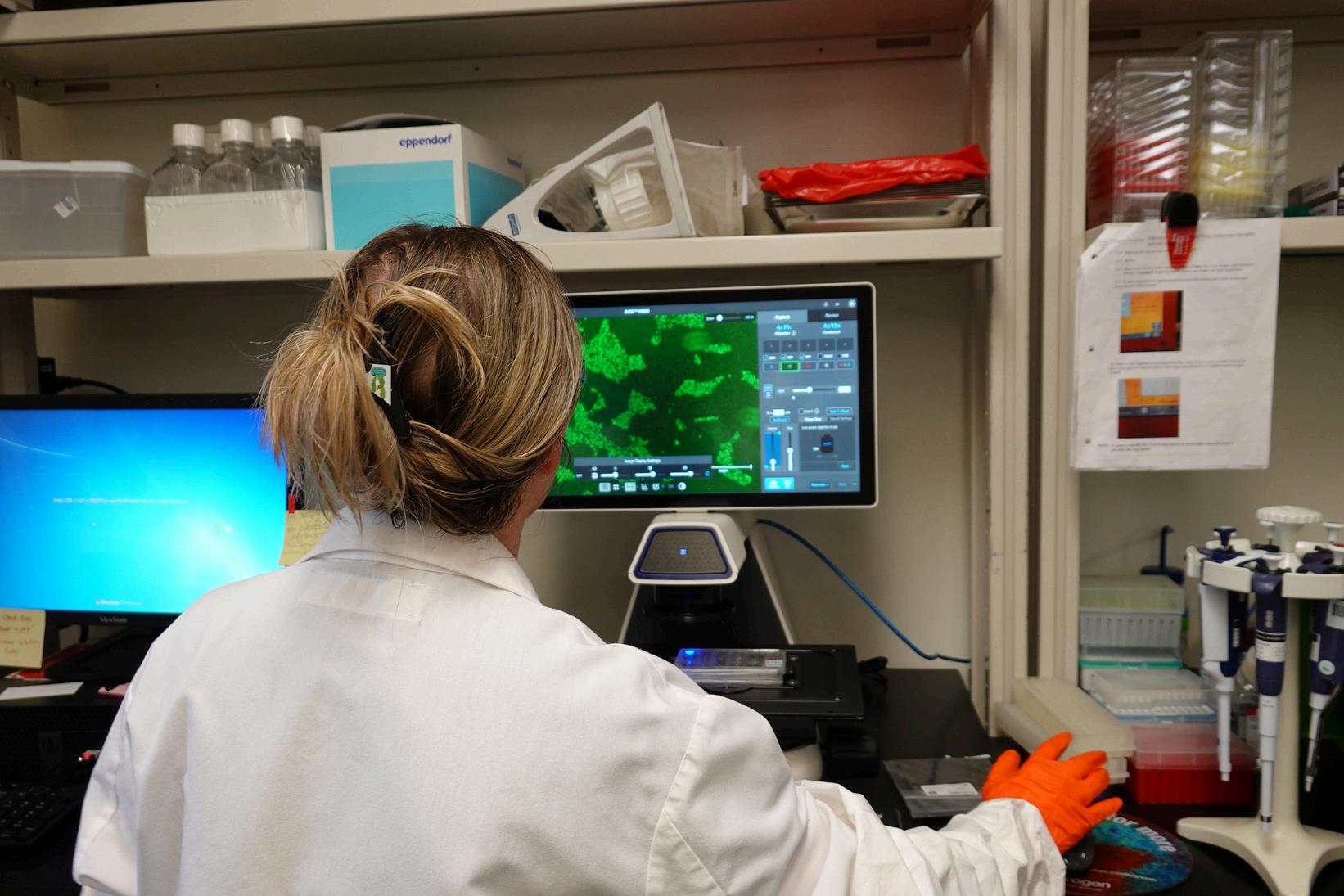
In 2024 the lab classi�ed biospecimens from the 1000 Genomes Project into pharmacogenetic (also known as star allele) annotations using the PharmVar system.
This annotation enables these samples to be used in clinical pharmacogenetic testing and to study how drug metabolism varies across individuals. The updated biospecimens were cataloged using ursaPGx, a computational tool developed in-house by the Scheinfeldt team. This resource represents a large and diverse sample set, now available for general research across a broad range of applications.
For more information on the Scheinfeldt Lab, click here. Papers published by the lab in 2024 can be found in the list of Publications
2 0 2 4 P U B L I C A T I O N S 2 0 2 4 P U B L I C A T I O N S
Exosomal Galectin-3 promotes peritoneal metastases in gastric adenocarcinoma via microenvironment alterations.
Fan Y, Song S, Pizzi MP, Zou G, Vykoukal JV, Yoshimura K, Jin J, Calin GA, Waters RE, Gan Q, Wang L, Hanash S, Dhar SS, Ajani JA iScience. 2024 Dec 10;28(1):111564.
HSP90 inhibitor AUY922 suppresses tumor growth and modulates immune response through YAP1-TEAD pathway inhibition in gastric cancer.
Yoshimura K, Zou G, Fan Y, Yamashita K, Wang L, Wu J, Wang R, Shao S, Scott AW, Jin J, Pizzi MP, Yao X, Brown CA, Wang L, Gan Q, Waters RE, Yin F, Song S, Dhar SS, Ajani JA Cancer Letters. 2025 Feb 1;610:217354.
Engraftment of a surrogate antigen onto tumor cell surface via pHLIP peptide to universally target CAR-T cell therapy to solid tumors.
Zhang YT, Fu X, Ting Lim JJ, Zhang SX Cancer Letters. 2025 Jan 1;608:217319.
ZNFX1 is a Novel Master Regulator in Epigeneticallyinduced Pathogen Mimicry and Inflammasome Signaling in Cancer.
Stojanovic L, Abbotts R, Tripathi K, Coon CM, Rajendran S, Farid EA, Hostetter G, Guarnieri JW, Wallace DC, Liu S, Wan J, Calendo G, Marker R, Gohari Z, Inayatullah MMA, Tiwari VK, Kader T, Santagata S, Drapkin R, Kommoss S, Pfisterer J, Konecny GE, Coopergard R, Issa JP, Winterhoff BJN, Topper MJ, Sandusky GE, Miller KD, Baylin SB, Nephew KP, Rassool FV bioRxiv [Preprint]. 2024 Oct 21:2024.10.18.618659.
Tumor-Associated Macrophages as Major Immunosuppressive Cells in the Tumor Microenvironment.
Ghebremedhin A, Athavale D, Zhang Y, Yao X, Balch C, Song S Cancers (Basel). 2024 Oct 8;16(19):3410.
Atlas of Metastatic Gastric Cancer Links Ferroptosis to Disease Progression and Immunotherapy Response.
Cheng X, Dai E, Wu J, Flores NM, Chu Y, Wang R, Dang M, Xu Z, Han G, Liu Y, Chatterjee D, Hu C, Ying J, Du Y, Yang L, Guan X, Mo S, Cao X, Pei G, Jiang J, Lu X, Benitez AM, Waters RE, Pizzi MP, Shanbhag N, Fan Y, Peng F, Hanash SM, Calin G, Futreal A, Song S, Yee C, Mazur PK, Qin JJ, Ajani JA, Wang L. Gastroenterology. 2024 Aug 2:S0016-5085(24)052971.
Unveiling the intricate dance: Obesity and TNBC connection examined.
Newport-Ratiu PA, Hussein KA, Carter T, Panjarian S, Jonnalagadda SC, Pandey MK
Life Sciences. 2024 Nov 15;357:123082.
The role of Hippo/YAP1 in cancer-associated fibroblasts: Literature review and future perspectives.
Athavale D, Balch C, Zhang Y, Yao X, Song S Cancer Letters. 2024 Nov 1;604:217244.
STING is crucial for the survival of RUNX1::RUNX1T1 leukemia cells.
Sun Y, Wu Y, Pang G, Huang J, Sheng M, Xie J, Chen P, Wang Y, Yin D, Zhao G, Bohlander SK, Huang J, Xu GL, Gao H, Zhou D, Shi Y Leukemia. 2024 Oct;38(10):2102-2114.
The attenuated hepatic clearance of propionate increases cardiac oxidative stress in propionic acidemia.
Wang Y, Zhu S, He W, Marchuk H, Richard E, Desviat LR, Young SP, Koeberl D, Kasumov T, Chen X, Zhang GF Basic Research in Cardiology. 2024 Dec;119(6):10451062.
Tissue-infiltrating alloreactive T cells require Id3 to deflect PD-1-mediated immune suppression during GVHD.
Wang Y, He S, Calendo G, Bui T, Tian Y, Lee CY, Zhou Y, Zhao X, Abraham C, Mo W, Chen M, Sanders-Braggs R, Madzo J, Issa JP, Hexner EO, Wiest DL, Reshef R, Xue HH, Zhang Y Blood. 2024 Jan 11;143(2):166-177.
E-cadherin loss drives diffuse-type gastric tumorigenesis via EZH2-mediated reprogramming.
Zou G, Huang Y, Zhang S, Ko KP, Kim B, Zhang J, Venkatesan V, Pizzi MP, Fan Y, Jun S, Niu N, Wang H, Song S, Ajani JA, Park JI. Journal of Experimental Medicine. 2024 Apr 1;221(4): e20230561.

Association between gut microbiota and CpG island methylator phenotype in colorectal cancer.
Park PH, Keith K, Calendo G, Jelinek J, Madzo J, Gharaibeh RZ, Ghosh J, Sapienza C, Jobin C, Issa JJ Gut Microbes. 2024 Jan-Dec;16(1):2363012.
Fasting alleviates metabolic alterations in mice with propionyl-CoA carboxylase deficiency due to Pcca mutation.
He W, Marchuk H, Koeberl D, Kasumov T, Chen X, Zhang GF Communications Biology. 2024 May 29;7(1):659.
A mitochondrial surveillance mechanism activated by SRSF2 mutations in hematologic malignancies.
Liu X, Devadiga SA, Stanley RF, Morrow RM, Janssen KA, Quesnel-Vallières M, Pomp O, Moverley AA, Li C, Skuli N, Carroll M, Huang J, Wallace DC, Lynch KW, AbdelWahab O, Klein PS Journal of Clinical Investigation. 2024 May 7;134(12):e175619.
Genome-wide screening and functional validation of methylation barriers near promoters.
Shu J, Jelinek J, Chen H, Zhang Y, Qin T, Li M, Liu L, Issa JJ Nucleic Acids Research. 2024 May 22;52(9):4857-4871.
Development of a novel humanized anti-TSLP monoclonal antibody HZ-1127 with anti-allergic diseases and cancer potential.
Liu X, Han J, Wang Q, Wang P, Li L, Du K, Jiang F, Zhang P, Liu H, Huang J. Antibody Therapeutics. 2024 Feb 27;7(2):123-130.
Mesothelial cells with mesenchymal features enhance peritoneal dissemination by forming a protumorigenic microenvironment.
Yonemura A, Semba T, Zhang J, Fan Y, Yasuda-Yoshihara N, Wang H, Uchihara T, Yasuda T, Nishimura A, Fu L, Hu X, Wei F, Kitamura F, Akiyama T, Yamashita K, Eto K, Iwagami S, Iwatsuki M, Miyamoto Y, Matsusaki K, Yamasaki J, Nagano O, Saya H, Song S, Tan P, Baba H, Ajani JA, Ishimoto T. Cell Reports. 2024 Jan 23;43(1):113613.
ursaPGx: a new R package to annotate pharmacogenetic star alleles using phased whole-genome sequencing data.
Calendo G, Kusic D, Madzo J, Gharani N, Scheinfeldt L Frontiers in Bioinformatics. 2024 Mar 12;4:1351620.
Deep learning-based predictive classification of functional subpopulations of hematopoietic stem cells and multipotent progenitors.
Wang S, Han J, Huang J, Islam K, Shi Y, Zhou Y, Kim D, Zhou J, Lian Z, Liu Y, Huang J Stem Cell Research & Therapy. 2024 Mar 13;15(1):74.
Star allele search: a pharmacogenetic annotation database and user-friendly search tool of publicly available 1000 Genomes Project biospecimens.
Gharani N, Calendo G, Kusic D, Madzo J, Scheinfeldt L BMC Genomics. 2024 Jan 26;25(1):116.
MC180295 is a highly potent and selective CDK9 inhibitor with preclinical in vitro and in vivo efficacy in cancer.
Zhang H, Huang C, Gordon J, Yu S, Morton G, Childers W, Abou-Gharbia M, Zhang Y, Jelinek J, Issa JJ Clinical Epigenetics. 2024 Jan 3;16(1):3.
Use of genome-wide DNA methylation analysis to identify prognostic CpG site markers associated with longer survival time in dogs with multicentric high-grade B-cell lymphoma.
Teoh YB, Ishizaki T, Kagawa Y, Yokoyama S, Jelinek J, Matsumoto Y, Tomiyasu H, Tsujimoto H, Takiguchi M, Yamazaki J.
Journal of Veterinary Internal Medicine. 2024 JanFeb;38(1):316-325.
SMYD5 methylation of rpL40 links ribosomal output to gastric cancer.
Park J, Wu J, Szkop KJ, Jeong J, Jovanovic P, Husmann D, Flores NM, Francis JW, Chen YC, Benitez AM, Zahn E, Song S, Ajani JA, Wang L, Singh K, Larsson O, Garcia BA, Topisirovic I, Gozani O, Mazur PK
Nature. 2024 Aug;632(8025):656-663.
As part of our pledge to communicate and collaborate with the international scientific community, Coriell's scientists and staff routinely contribute their findings to leading publications. To see our latest findings, check our website.
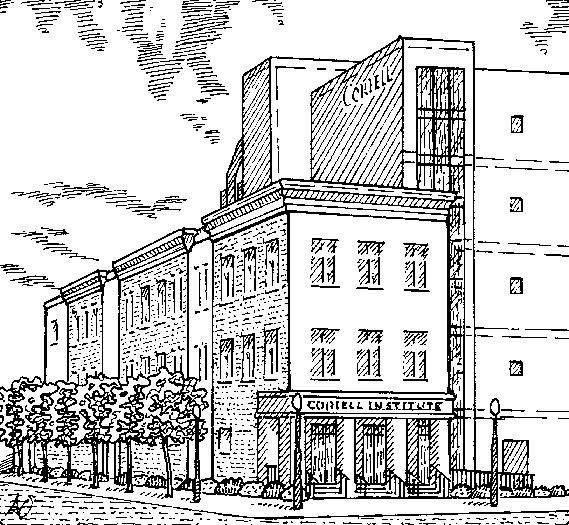

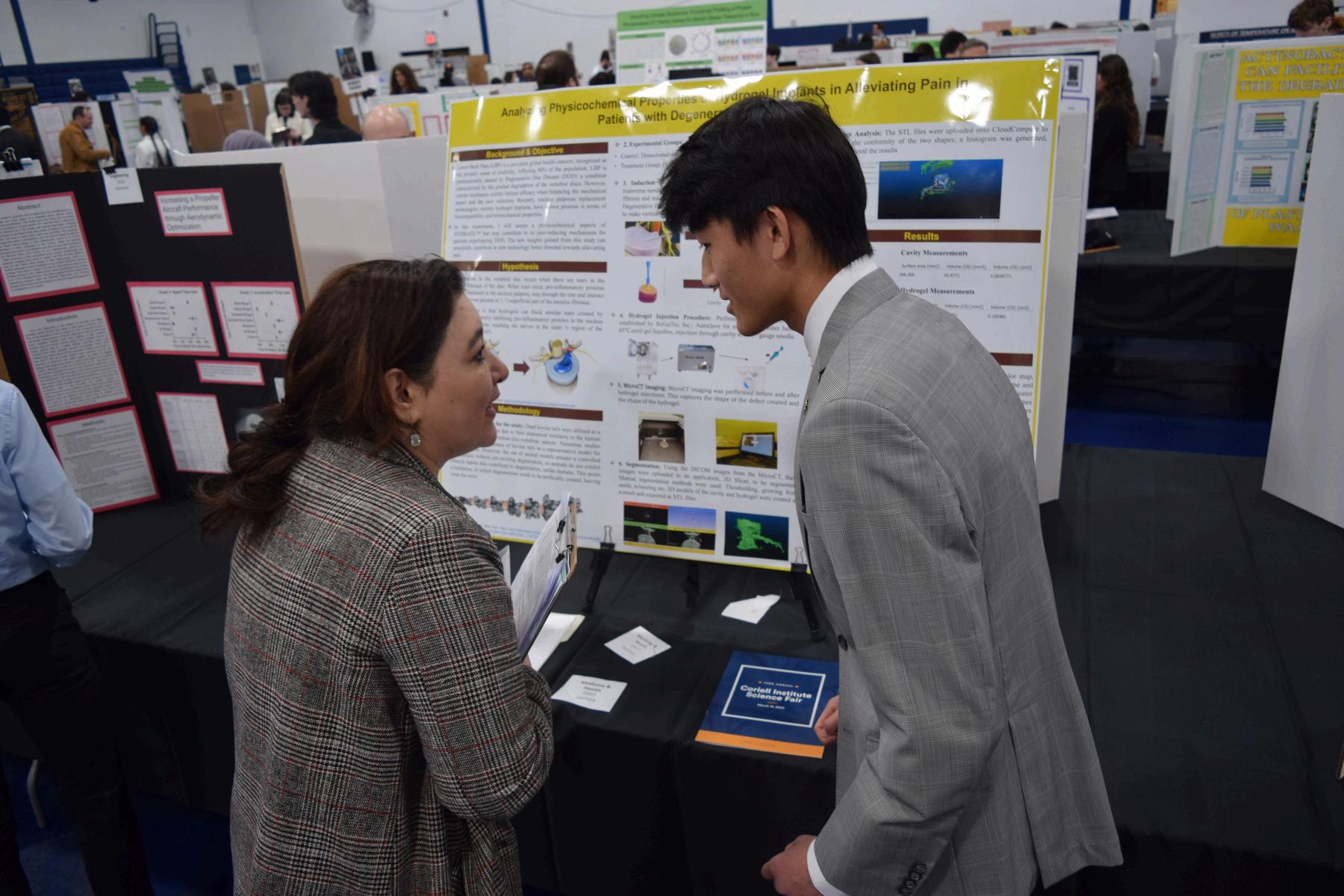
The Annual Coriell Science Fair provides students who are interested in a career in science or technology with an introduction to the realm of real-world research. Students in grades six to twelve have the opportunity to gain hands-on experience in developing a research protocol, executing that protocol, creating a scienti�c poster and presenting their �ndings to established scientists, similar to participating at a professional conference. We hope that this opportunity will jump-start a life-long, rewarding scienti�c career.
Our 43 Annual Science Fair held in 2024 at Camden County College provided a showcase for 101 students from Camden, Gloucester and Burlington counties to display their scienti�c and technological prowess through their very impressive projects.
Sixty-seven students, across our 14 STEM categories, advanced to the Delaware
As the stewards of the Institute, one of our priorities is to enthuse and cultivate future generations of scientists who will carry on our work here and elsewhere. This is why our programs to engage with students –from middle school to post-doctoral fellows is so important to us.
Our Summer Experience for high school and college students is another of our highly valued programs to provide students with handson experience to enhance their interest in biomedical research. Through our fourweek Summer Experience program, we o�er a select number of students with the opportunity to be a member of our research and production team, spending time in each of our cell culture, stem cell,
In 2024, we had seven students participate in the program, one of whom has been hired as a full-time laboratory technician at Coriell.
We hope that our summer interns will return to Coriell upon completion of their college studies to continue their education in our postdoctoral program, assisting our scientists with their innovative research.
Coriell currently has eight post-doctoral and two pre-doctoral researchers making valuable contributions to our work. molecular biology labs and biobank.
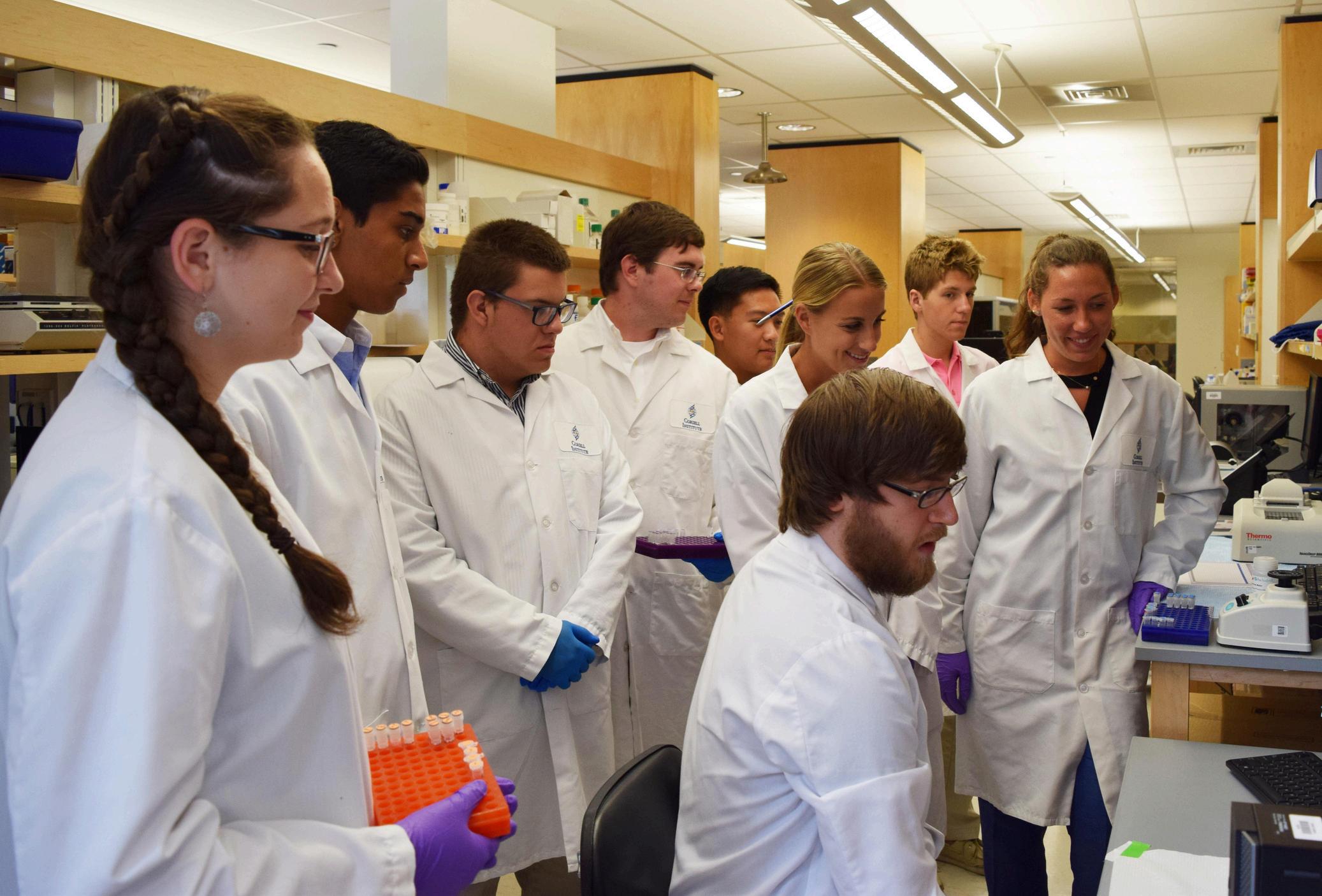
Valley Regional Science Fair, with 23 of them winning awards there and one advancing to the acclaimed Regeneron International Science and Engineering Fair. S T E M E D U C A T I O N S T E M E D U C A T I O N
Being an active member of the Camden community was a foundational tenet of our founder, Dr. Lewis L. Coriell, when he established the Institute in 1953.
The Coriell Institute is proud to continue Dr. Coriell’s credo through partnerships with our neighboring institutions and community organizations to bene�t the residents and patients of Camden, including the Parkside Business and Community in Partnership, Camden Community Partnership, Cooper Hospital Foundation, Cooper Medical School at Rowan University, and MD Anderson.

A R T N E R I N
A R T N E R I N
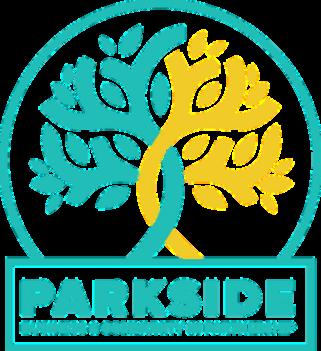



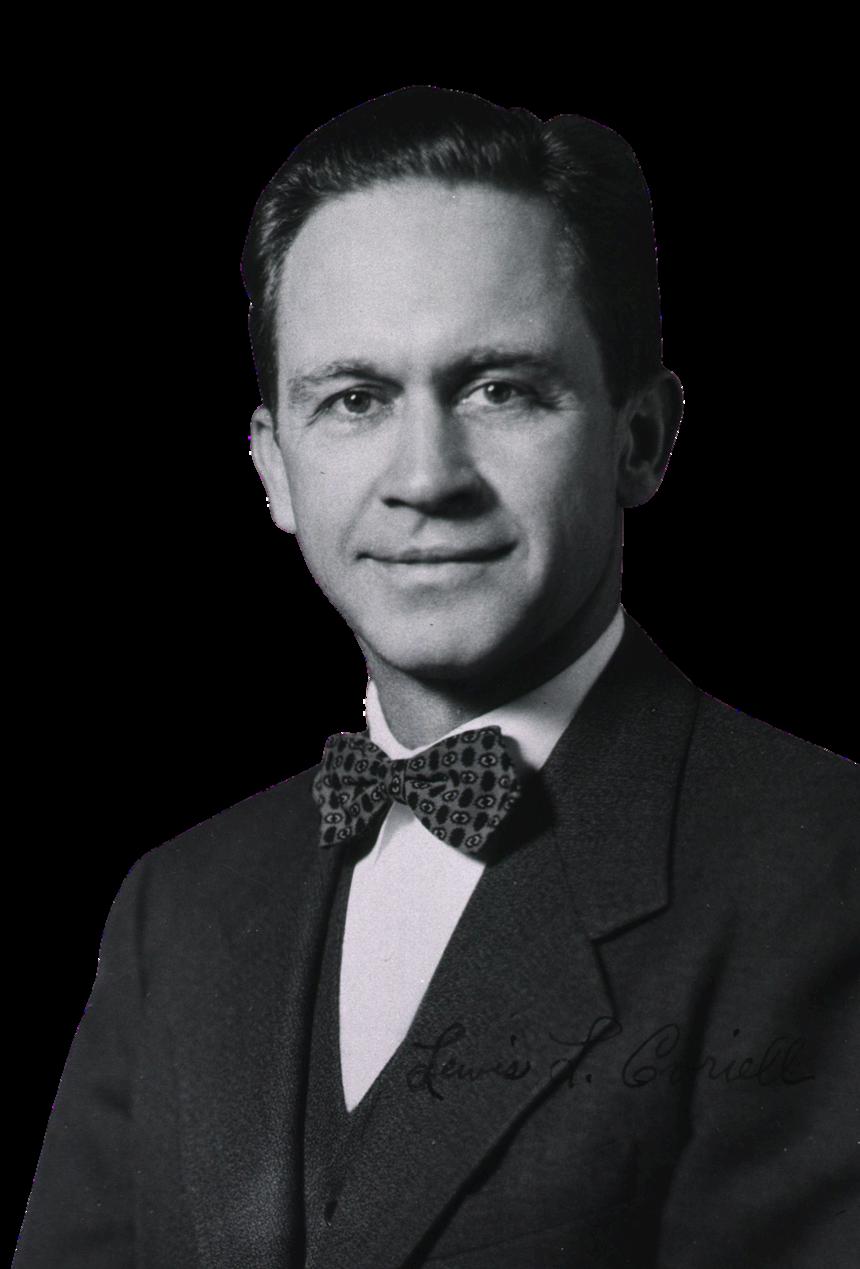
For more than 70 years, the Coriell Institute has been breaking new ground in biomedical research, and we are not slowing down but setting the bar higher.
Our successes are due to the strong support we receive from leading public and private entities that share our vision to improve human health, such as the National Institutes of Health, the State of New Jersey, private disease foundations, fellow academic research institutions and in particular, individuals who share in our mission.
We are able to conduct research that is constantly expanding the boundaries of biomedical science thanks to the generosity of our donors who share our goal of fostering a longer, healthier, high-quality life.
To make a contribution, or if you would like further information, please contact us at giving@coriell.org or visit coriell.org/donation.
G I V I N G G I V I N G
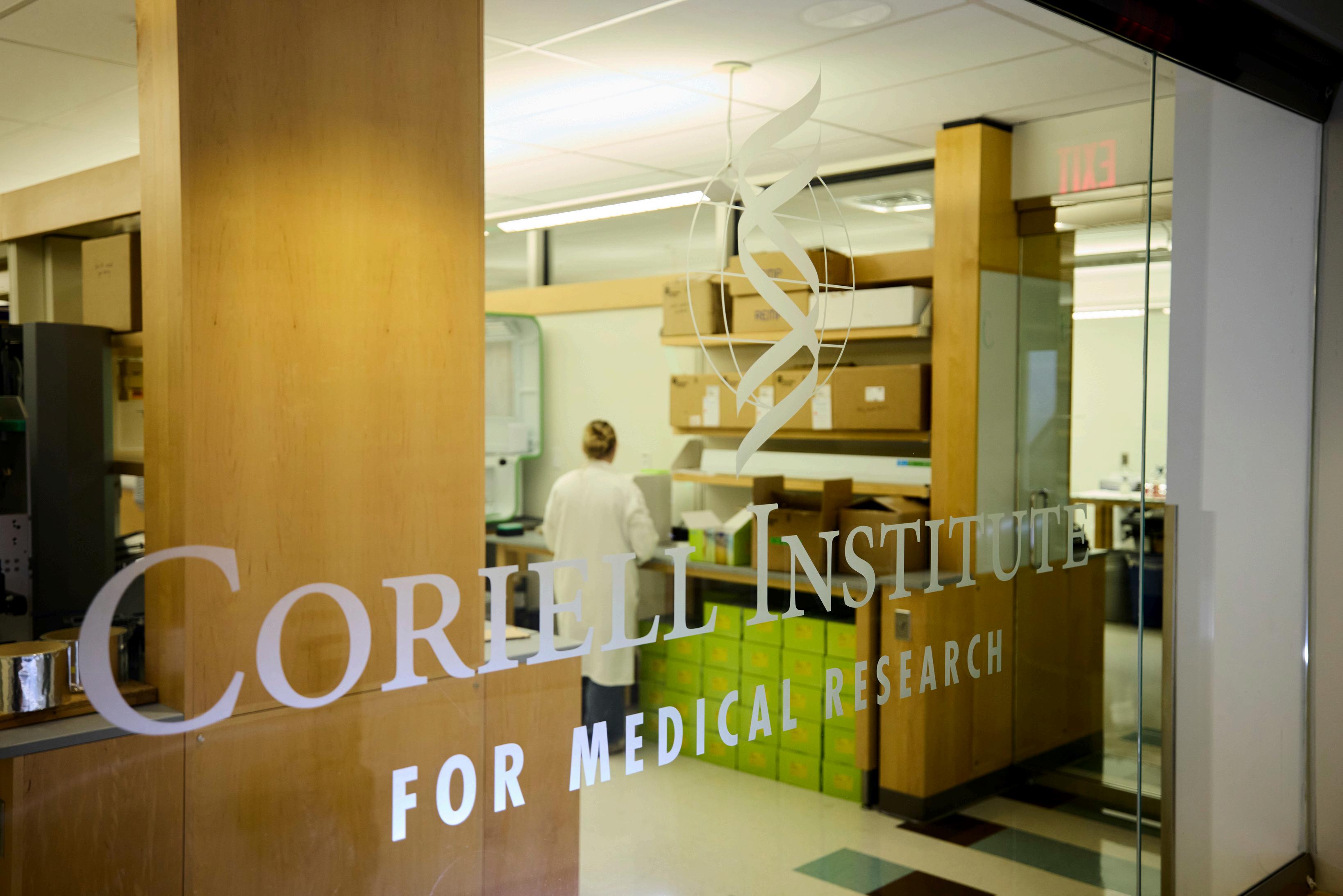
TA project of the Coriell Institute for Medical Research and the New Jersey Economic Development Authority, the “NJ Coriell Labs Innovation Center" will be a statedesignated Strategic Innovation Center (SIC) to support emerging biotech companies.
Located within the Coriell Institute's planned life sciences campus, the NJ Coriell Labs Innovation Center will provide premium incubator space, core facilities, a vivarium and corporate suites.
NJ Coriell Labs Innovation Center will be the largest public life sciences incubator in the region
Phase I of the NJ Coriell Labs Innovation Center will encompass 20,000 square feet to house a minimum of 15 emerging biotech companies.
NJ Coriell Labs Innovation Center will provide emerging biotech companies with the ability to collaborate with Coriell’s world-class scientists, the Camden Cancer Research Center, and leading research institutions and healthcare systems in the region
For more information, please contact: Leo Jose, Vice President of Innovation ljose@coriell.org
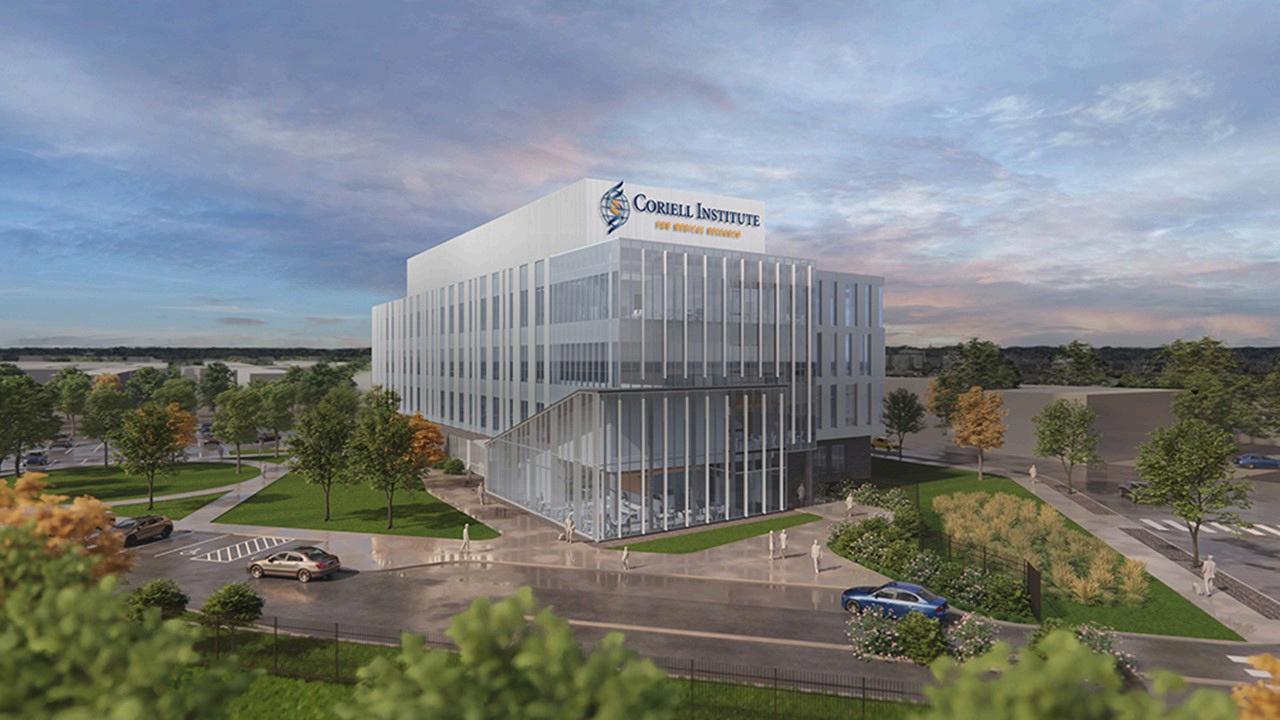
115 317
Employees
9,655 $7.7M
Disesases represented in our biobank
93 Countries supplied by Coriell for ten competitive NIH awards in FY24
New diseases added to our collection





